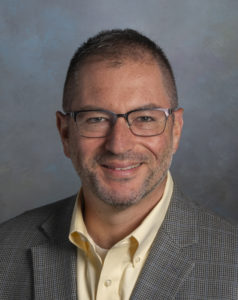
Professor of Psychological Science and Director of Academic Integrity Programs David Rettinger
Professor of Psychological Science David Rettinger, who is director of Academic Integrity Programs at UMW, weighed in on an article in Inside Higher Ed entitled, “Shades of Gray on Student Cheating”:
When David Rettinger, president emeritus of the International Center for Academic Integrity (ICAI), looked over the Student Voice data, he was drawn to the numbers that showed how much students realize certain actions would be considered cheating. “Some of [the unacceptable responses] are a little lighter for sure, but students generally would describe these behaviors as unacceptable,” says Rettinger, a professor of psychological science and director of academic integrity programs at the University of Mary Washington. “Their institutions talk about these things, and students know what they’re supposed to do, yet students cheat a fair bit.”
He can imagine a stressed-out student saying, “I know it’s unacceptable, mostly I don’t do it, but in this situation I’m going to do something I generally don’t believe in.” Read more.